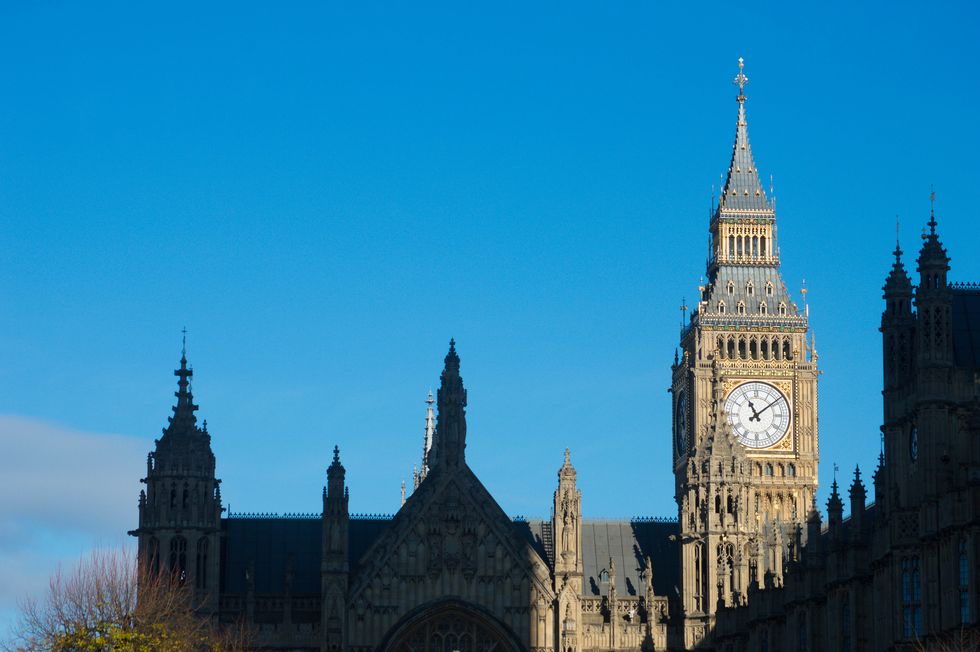Don't Miss
Most Read
Trending on GB News
Council pension funds will be told not to make investment decisions that conflict with the UK’s foreign and defence policies.
MPs voted 299 to 81 – a majority of 218 – in favour of a proposal which will allow ministers to issue such guidance to authorities administering public sector pension schemes, including the local government pension scheme.
The Government backed the change to the Public Service Pensions and Judicial Offices Bill amid calls from Conservative former cabinet minister Robert Jenrick for action to stop public sector bodies from boycotting Israel-linked investments.
The call for a ban on the Boycott, Divestment and Sanctions (BDS) movement within town hall pension pots came after the Government lost a lengthy legal battle under Mr Jenrick’s tenure as communities secretary.
Parliament
Gareth Milner/GBN
In 2020, the Supreme Court ruled that parts of the Government’s guidance on boycotts were unlawful, and it could not stop council pension fund administrators from making such decisions.
A total of 22 backbench Labour MPs were among those to oppose Mr Jenrick’s amendment, with concerns expressed that councils will not be able to take a stand on key issues.
Speaking at the Bill’s report stage, Mr Jenrick said: “We can’t stand idly by and see levels of antisemitism in this country continue to rise, we have to be taking every opportunity to tackle this issue. This is one way in which we can do that. There are many others.”
He added: “The BDS movement does absolutely nothing to advance the cause of peace.
“It is because the BDS movement sees Israel as a colonial endeavour that they view the Israel-Palestine question as an insurmountable framework of conflict between occupiers in their eyes Israeli Jews, and the occupied, in their eyes Palestinian Muslims.”
He said BDS is “ultimately yesterday’s war”, and said if the UAE, Jordan, Egypt, Bahrain and other nations can recognise the state of Israel “then we as a country should not be tolerating this kind of activity and certainly not within the public sector”.
Mr Jenrick said he hopes to see a wider BDS Bill in the Queen’s Speech “which makes the UK one of the first countries in the world to really grapple with this issue”.
Treasury minister Simon Clarke offered the Government’s support.
He said: “We committed in our manifesto to stopping public bodies from running their own direct or indirect boycotts and the wider BDS movement and I’m grateful to (Mr Jenrick) for all the hard work that he has done to draw the House’s attention to this important issue.”
He added: “The BDS movement has nothing to do with pensions and everything to do with politics. It has had the chilling effect of legitimising antisemitism among the hard left.”
Labour former shadow chancellor John McDonnell said: “I think there’s a lesson for all of us here… I believe that only in extremis should the state interfere in one’s own privately earned income.”
The MP for Hayes and Harlington added: “I thought the Supreme Court were pretty clear that this is not public money in the sense that enables the Government to issue guidance. This amendment goes further than guidance; it actually includes directions as well.”
He said he is a member of the local government pension scheme, and said he worked on the basis that, when he was employed in local government, he considered money invested in his pension as his “earned income”.
He said “on moral grounds” he has argued within his own local government pension scheme that he does not want his earned income invested in a number of states, including Saudi Arabia, China, Columbia, and Israel, describing the latter as “an apartheid state in the way that they treat the Palestinians”.
Labour MP Zarah Sultana (Coventry South) highlighted Britain’s links to the Yemen civil war and said the amendment “could deny councils the right to divest from arms companies whose bombs rained down on the people of Yemen”.
With the Bill, the Government aims to create a common legal framework for all public sector pensions, including police, teachers, NHS workers and the armed forces.
It is also seeking to increase the retirement age for judges, magistrates and coroners from 70 to 75.
Concerns have been raised the move will lead to fewer vacancies in the top jobs and hamper efforts to increase diversity among judicial office holders with more women and people from ethnic backgrounds.
The Bill later received an unopposed third reading and will return to the Lords for further scrutiny.











